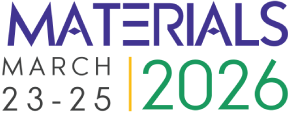Title : Clusters of catalytic bio nanocompartments for applications in biomedicine
Abstract:
Compartmentalization is fundamental in nature, where the spatial segregation of biochemical reactions within and between cells ensures optimal conditions for the regulation of cascade reactions. One of the most promising strategies to mimic nature compartimentalization is to combine synthetic nano-compartments with biomolecules in order to develop artificial organelles and to generate a more complex architecture and functionality, as cell mimics. Here, we present how clusters of bioinspired catalytic nanocompartments support cascade reactions able to enhance production of specific compounds in vitro. First, we generate individual catalytic nanocompartments (CNCs) by encapsulating within polymersomes enzymes involved in a cascade reaction and then, tether the polymersomes together into clusters. DNA hybridization between single DNA strands and complementary DNA strands exposed on different CNCs droves the clusterization process and controls the distance between the respective catalytic nanocompartments. The cascade reaction between spatially segregated enzymes is significantly more efficient than when the catalytic nanocompartments are not linked together by DNA duplexes. Additionally, single DNA strands not engaged in clustering CNCs could be used to attach clusters to the cell surface, as evidenced by A549 cells, where clusters decorating the surface endowed them with a non-native enzymatic cascade. The self-organization into clusters of catalytic nanocompartments confining different enzymes of a cascade reaction allows for a distance control of the reaction spaces which opens new avenues for highly efficient applications in domains such as catalysis or nanomedicine, as for example as theranostic systems.
Audience take away:
- New technology to generate nanocompartments equipped with biomolecules
- Various medical applications can be addressed by changing the combination of biomolecules (e.g. protein therapy, nanotheranostics, dual biosensing)
- More efficient medical application for sensitive biomolecules that should be kept protected



